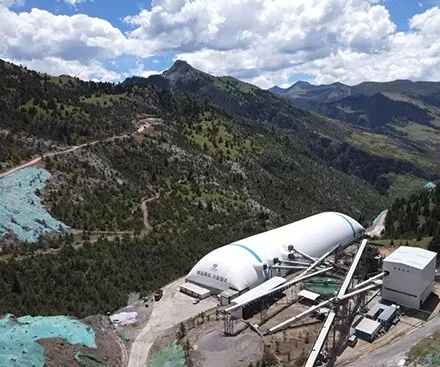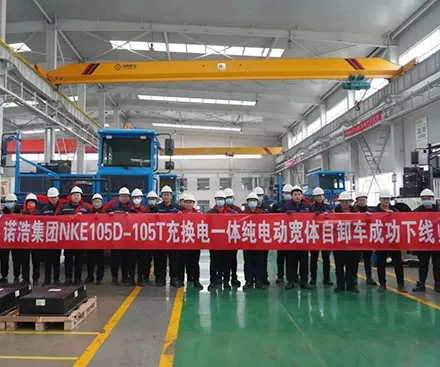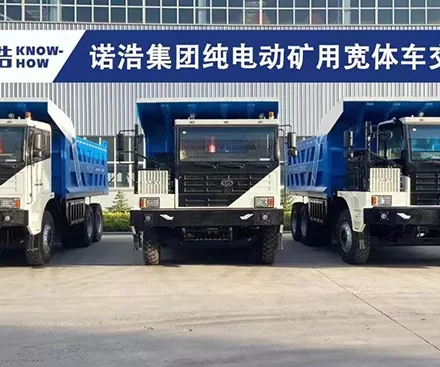Zero emissions, less noise and lower operating costs make electric diggers a smart choice for many jobs.
Mini excavators have become must-haves on many jobsites thanks to their convenient size and ability to perform digging, lifting and demolition. Electric mini excavators have joined the expanding array of electric construction equipment, enabling companies to achieve their sustainability objectives while enhancing efficiency and profitability.
These excavators boast zero emissions, making them environmentally friendly. They are significantly quieter and have lower operating costs compared to their diesel-powered counterparts. Electric mini excavators are particularly suitable for indoor projects, operations in urban no-emission zones, and worksites with noise and emissions regulations, such as those near schools and hospitals.
Is an electric mini excavator suitable for your business? Let's delve deeper into its benefits, capabilities, and charging requirements.
Electric mini excavators can accomplish the same tasks with equivalent—or superior—power and speed as diesel excavators, while offering distinct benefits.
Electric mini excavators produce no emissions, making them ideal for companies seeking to reduce their carbon footprint and comply with clean air regulations. Additionally, utilizing electric construction equipment can potentially attract more business by showcasing a commitment to environmental responsibility.
Powered by rechargeable lithium-ion batteries, electric mini excavators require minimal maintenance. They offer continuous operation without the need to monitor or refill engine liquids, change oil filters, or maintain numerous parts, resulting in decreased maintenance expenses and longer service intervals. Reduced maintenance translates to increased uptime and enhanced productivity.
Electricity is typically cheaper than fossil fuel. By using an electric machine, you not only save on fuel and maintenance costs but also eliminate the additional expense of exhaust extraction equipment required for indoor projects or work conducted under bridges and in tunnels.
Electric equipment produces no exhaust fumes, creating a safer environment for construction crews and individuals residing or working nearby. Additionally, electric mini excavators are up to five times quieter and produce fewer vibrations compared to similar diesel machines. Consequently, workers can communicate more effectively, and equipment operators experience greater comfort and reduced fatigue, leading to a lower risk of accidents and increased productivity.
An electric mini excavator offers versatility, allowing you to operate it almost anywhere due to its compact size, extended battery runtime, emissions-free operation, and quiet motor. It is particularly suitable for environments where diesel equipment would be deemed unacceptable, such as indoor areas, food production facilities, zoos, and locations near livestock.
Additionally, its quiet operation enables you to commence work early in the morning and continue into the evening, facilitating faster completion of jobs.
To ensure your machine is always ready for operation, you'll need to have the appropriate charging infrastructure and establish a charging schedule. In some instances, a mini excavator can operate for an entire shift without needing to be recharged.
Many models come equipped with a built-in onboard charger, offering the flexibility to choose between using the onboard charger or a faster offboard charger.
When using an onboard charger, charging times typically range from 6 to 12 hours, depending on the power source. A 240v outlet is recommended for optimal charging efficiency, although a standard 120v outlet can be utilized, albeit with a longer charging time. Charging can be conducted between shifts, overnight, or during operation if the machine offers tethering capabilities, allowing it to be connected to an outlet while in use.
Offboard charging provides a faster alternative. With a three-phase rapid charger, it's possible to fully charge an electric mini excavator in less than two hours.
Battery longevity is an important consideration. Most lithium-ion batteries have a lifespan of approximately five years or 2,000 charging cycles before requiring replacement. However, factors such as ambient temperature, overcharging, storage conditions, and other variables can impact battery life over time. Most manufacturers offer a two-year warranty on batteries.
If prioritizing employee well-being, meeting sustainability objectives, and enhancing productivity are among your top priorities, investing in an electric mini excavator for your next project could prove beneficial. It's a decision that has the potential to save both time and money in the long run while contributing to environmental conservation efforts.

Jul. 23, 2022
View More
Jun. 15, 2022
View More
Jun. 01, 2022
View More